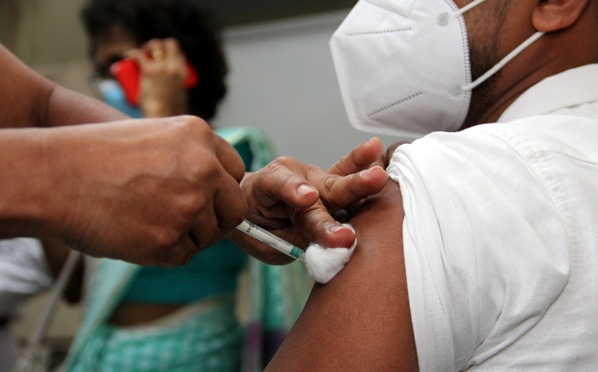WHO continues to recommend use of AstraZeneca vaccine for now
By Christiane Oelrich
GENEVA – The World Health Organization (WHO) recommends continuing vaccinations with AstraZeneca’s vaccine against COVID-19 until further notice, despite recent fears about its safety.
“Vaccination against COVID-19 will not reduce illness or deaths from other causes. Thromboembolic events are known to occur frequently. Venous thromboembolism is the third most common cardiovascular disease globally,” the WHO said in a statement.
In extensive vaccination campaigns, it is routine for countries to signal potential adverse events following immunization.
“This does not necessarily mean that the events are linked to vaccination itself, but it is good practice to investigate them,” the WHO said. It added: “It also shows that the surveillance system works and that effective controls are in place.”
The WHO Global Advisory Committee on Vaccine Safety is carefully assessing the latest available safety data for the AstraZeneca vaccine, the statement said. “Once that review is completed, WHO will immediately communicate the findings to the public.”
“At this time, WHO considers that the benefits of the AstraZeneca vaccine outweigh its risks and recommends that vaccinations continue,” it said.
Earlier, a WHO regional office stated that vaccinations remain key to reducing severe illness with COVID-19 and even deaths.
WHO Europe issued a series of tweets after a number of countries decided to temporarily suspend vaccinations with AstraZeneca’s jab amid fears about blood clotting as a side effect.
On Wednesday (17), the Palestinian Authority became the latest to temporarily pause the rollout of the jab, and Health Minister Mai al-Kaileh said officials were waiting for an assessment by the WHO.
The West Bank is waiting for initial deliveries of vaccines through the COVAX scheme for poorer nations. Of the 62,000 doses expected, 24,000 are from AstraZeneca, according to Palestinian sources.
In Germany, a survey found six out of 10 people thought stopping use of the jab was the right decision, YouGov found.
German Health Minister Jens Spahn also defended the precautionary measure in a video posted on Facebook, reassuring viewers that officials were taking care.
German lawmakers are to decide whether to reinstate the jab at a summit on Friday (19), a day after an assessment is expected from the European Medicines Agency.
However, European Commission President Ursula von der Leyen expressed her confidence in the vaccine’s active ingredient.
Indian officials, however, said they would keep using the AstraZeneca shot in the national vaccination program, and available data did not indicate any thrombotic events linked to the jab.
In Lithuania, President Gitanas Nauseda meanwhile said stopping use of the AstraZeneca vaccine had impacted public confidence.
Nauseda took a swing at the country’s health minister over the decision to temporarily suspend vaccinations with the jab.
The decision has “undoubtedly damaged confidence in this vaccine in the eyes of the Lithuanian people,” said Nauseda, according to the BNS agency.
He said that the Health Ministry’s “inconsistent communication” about the vaccine could add to a wave of disinformation about AstraZeneca, as well as the vaccination programme as a whole.
In Britain, several officials defended AstraZeneca’s jab.
Prime Minister Boris Johnson, Health Secretary Matt Hancock, Jeremy Brown – a member of Britain’s vaccine advisory committee – and Business Secretary Kwasi Kwarteng all reiterated their support.
Johnson also told lawmakers on Wednesday that he would soon receive AstraZeneca’s jab.
Meanwhile, an independent council of vaccine experts recommended that the WHO approve the vaccine against Covid-19 made by Janssen and Johnson and Johnson.
The drug has a 93.1 per cent efficacy rate against hospitalizations, said Alejandro Cravioto, chairman of the Strategic Advisory Group of Experts on Immunization (SAGE).
The vaccine council also said there had also been reports of blood clots among participants in the Johnson and Johnson studies, as are also common among the wider populace.
Countries without capacity to carry out their own scientific testing can also grant approval in their countries based on the WHO’s work.
-dpa


